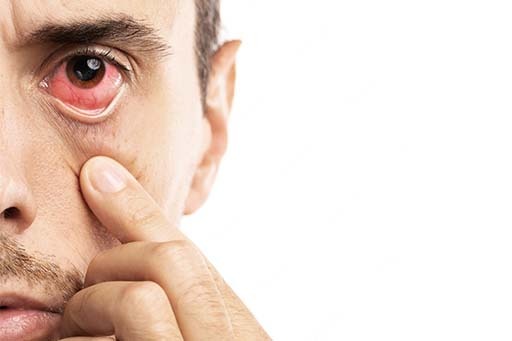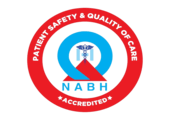The retina is a vital part of the eye, responsible for capturing light and sending visual signals to the brain. Any damage to this delicate layer can lead to vision problems and, in severe cases, permanent blindness. Understanding retinal issues, their causes and the importance of early diagnosis is crucial in maintaining good eye health. This blog will take you into the common retinal problems, preventive measures, and why early detection is paramount.
Understanding the Retina and Its Function
The retina is a thin layer of tissue located at the back of the eye. It consists of light-sensitive cells that convert light into electrical signals. These signals are then transmitted through the optic nerve to the brain, where they are processed into images. In essence, the retina plays a central role in how we perceive the world around us.

Any damage or abnormality in the retina can disrupt this process, leading to distorted vision, blind spots, or even total vision loss. Given the retina’s significance, safeguarding its health is crucial for maintaining overall visual acuity.
Common Retinal Issues: Symptoms, Causes, and Risks
Several retinal conditions can impair vision. Some of the most common include:
Diabetic Retinopathy: Diabetic retinopathy occurs due to damage to the blood vessels in the retina caused by high blood sugar levels. It can lead to vision loss if left untreated. Symptoms include floaters, blurred vision, and difficulty in seeing colours.
Age-Related Macular Degeneration (AMD): AMD is a common retinal condition among older adults and results from the deterioration of the macula, the central part of the retina responsible for sharp vision. There are two types—dry and wet AMD. Symptoms include blurred or dark spots in the central vision.
Retinal Detachment: Retinal detachment is a serious condition where the retina pulls away from its normal position. If not treated immediately, it can lead to permanent vision loss. Symptoms include sudden flashes of light, floaters, and a shadow covering a portion of the visual field.
Retinal Vein Occlusion (RVO): This occurs when veins carrying blood away from the retina become blocked. It often results in a sudden loss of vision in one eye. People with high blood pressure, diabetes, or glaucoma are at a higher risk.
Macular Hole: A macular hole causes distorted or blurred central vision. This can occur due to ageing or eye trauma.
Importance of Early Diagnosis and Regular Eye Check-ups
Many retinal conditions do not exhibit symptoms early, making regular eye examinations crucial for early detection. Early diagnosis can significantly improve treatment outcomes and help prevent further deterioration. For instance:
AMD treatment can slow the progression of the disease and preserve vision for longer.
Retinal Detachment can be corrected through surgery if diagnosed before it causes irreversible damage.
Diagnostic Techniques for Retinal Issues
Early diagnosis of retinal issues often involves several diagnostic procedures, including:
Dilated Eye Examination: This is a comprehensive eye exam where drops are used to dilate the pupils, allowing the ophthalmologist to examine the retina and optic nerve thoroughly.
Optical Coherence Tomography (OCT): OCT is a non-invasive imaging technique that captures detailed cross-sectional images of the retina, making it easier to detect structural abnormalities.
Fluorescein Angiography: This test uses a special dye to highlight the blood vessels in the retina, aiding in the detection of diabetic retinopathy, retinal vein occlusion and AMD.
Fundus Photography: High-resolution photographs of the retina are taken to document and monitor any changes over time.
How to Safeguard Your Vision? : Preventive Measures
Manage Chronic Conditions: Conditions such as diabetes and high blood pressure can significantly impact eye health. Regular monitoring and managing these conditions can reduce the risk of developing retinal issues.
Adopt a Healthy Diet: Nutrients like omega-3 fatty acids, lutein, and vitamins C and E have been shown to support retinal health. Incorporate foods such as fish, leafy greens, and citrus fruits into your diet.
Protect Your Eyes from UV Rays: Prolonged exposure to UV rays can increase the risk of cataracts and AMD. Wearing sunglasses that block 100% of UV rays can safeguard your eyes.
Avoid Smoking: Smoking increases the risk of retinal diseases, including AMD and diabetic retinopathy. Quitting smoking can significantly reduce these risks.
Stay Active: Regular exercise can improve blood circulation, lower blood pressure, and help manage diabetes—all crucial for maintaining retinal health.
Get Regular Eye Check-ups: Regular eye exams can help detect retinal issues early, even before symptoms appear. Those with a family history of retinal diseases should have more frequent check-ups.
Why Shekar Eye Hospital for Retinal Care?
At Shekar Eye Hospital, we are committed to providing comprehensive care for retinal issues. Our state-of-the-art diagnostic facilities and a team of experienced ophthalmologists ensure accurate diagnosis and effective treatment plans tailored to each patient’s needs.
Whether it’s managing chronic conditions like diabetic retinopathy or providing surgical solutions for retinal detachment, we prioritise early intervention to safeguard your vision. Our emphasis on patient education ensures that you’re informed about your condition and treatment options at every step.
Frequently Asked Questions (FAQs)
What are the most common retinal issues that people experience?
The most common retinal issues include diabetic retinopathy, age-related macular degeneration, retinal detachment, retinal vein occlusion, and macular holes. Each of these conditions can significantly impact vision and may require specialised treatment.
How often should I have my eyes checked to ensure retinal health?
For most individuals, an annual eye examination is recommended. However, those with chronic conditions like diabetes or a family history of retinal diseases should consider more frequent check-ups, as advised by their eye care professional.
Can retinal issues be prevented?
While some retinal issues are linked to ageing or genetics and cannot be entirely prevented, maintaining a healthy lifestyle, managing chronic conditions, and protecting your eyes from environmental damage can reduce the risk. Early detection and treatment are key to preventing vision loss.
Safeguarding your vision starts with understanding the importance of retinal health and prioritising regular eye care. If you have concerns or are at risk for retinal diseases, schedule an appointment at Shekar Eye Hospital for expert guidance and care.






